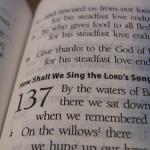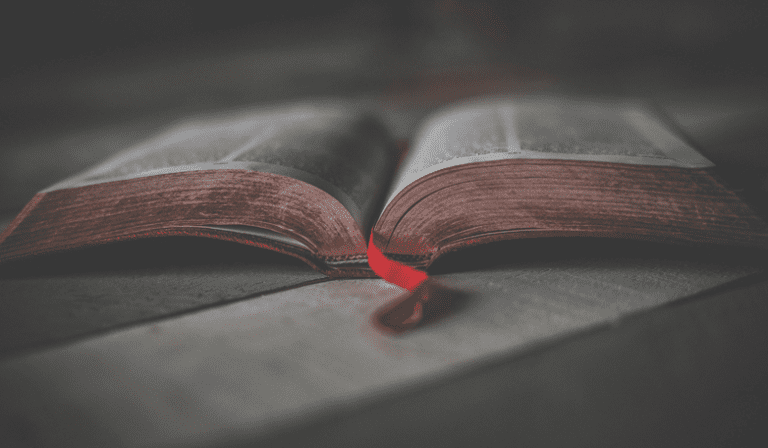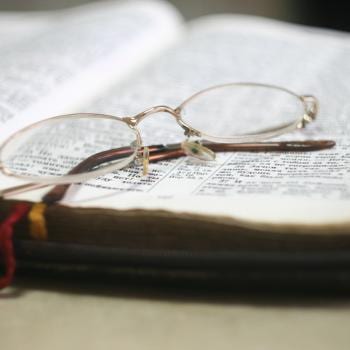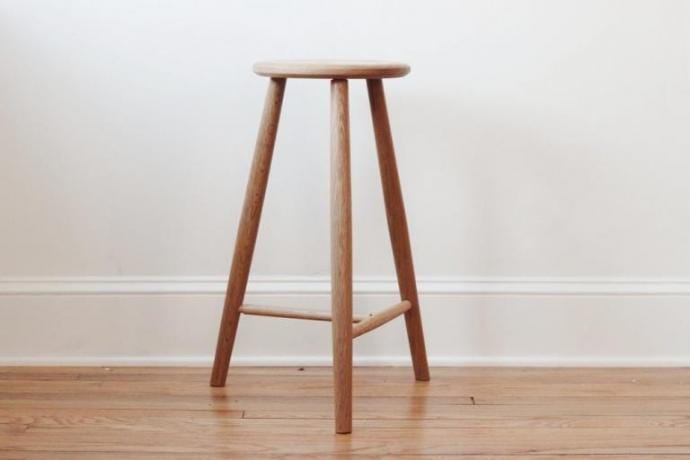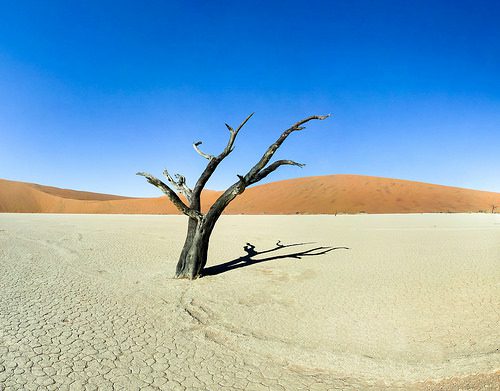
(Yesterday we started a new series on the life of David at Chelsea Village. As I’ve written before I attempt to write a full manuscript of my sermon before preaching. Throughout this series I’ll be posting some of the sermons I think will be helpful to people. If you would rather listen to the sermon, you can find it here.)
I once heard a man tell a story about what he calls the worst sin he ever committed. He was getting in his car after his wife had another miscarriage. Notice I said “another.” This humble, godly couple wanted a child and were going through terrible heartbreak in the process. He left his wife at home to go to work. When he got in the car he heard about a celebrity who had a baby. This was a person who had put out a lot of work which could only be described as immoral, filthy, and disgusting. This person had mocked Christianity in their art and done everything they could to advance bizarre sexuality. So, here this man’s faithful godly wife sat in grief while this celebrity who mocked the things of God was in the hospital enjoying her new baby. He heard himself say out loud in a sarcastic tone, “that’s fair.” In his heart he was questioning the goodness of God as he saw the wicked prosper and the humble wallow in pain.
Let’s be honest, his pain and frustration are not foreign to us. Often we look at the pain of this life and wonder where God is when his people suffer. We want to know why those who live faithful and godly lives seem to have such a hard time while those who seem to the stand for the most horrific forms of evil get to prosper. We want to know why God allows suffering and pain for his people and why those who live with no regard for him get to avoid so much of it. Where is God when we are in pain? Why does he allow his people to suffer and why does he allow wicked people to prosper? How can we trust God when he seems to have such an inverted sense of justice?
Today I want you to see that God is with his people in their pain and hardship; and I want you to see that God ultimately exalts and vindicates his people while bringing low the people who oppose him. We are going to look at this today from the book of 1 Samuel 1:1-2:11. We are beginning a study which will take us through the fall in the life of King David. You can read about David here in 1 and 2 Samuel, 1 and 2 Chronicles, and the read his works in the book of Psalms. David is a pivotal figure in the life of the Old Testament and God made many promises to him. Because of these promises, he is referenced many times in the New Testament. Many times this was in reference to Jesus fulfilling things which were spoken to David, by David, or about David. This is going to be a fun series as we are going to cover a lot of really interesting narrative.
To tell the story of David’s life, we need to understand some things that took place before he was born. God created the world and everything in it, including people in his image. Human beings fall into sin and God promises he will send a seed from the woman who will crush the had of Satan who tempted Adam and Eve. Much of the Old Testament assumes the question, “is this the one who will deliver God’s people?”. An important point in Old Testament history happens at the end of Genesis 11 when we meet Abram. God promises his that through his family all the nations of the earth will be blessed. Only Abraham has reached the age of seventy-five and has no children. His wife Sarah eventually gives birth to their son Isaac who has two sons Jacob and Esau. We’ll mention Jacob again in passing, but he had twelve sons by his two wives and their two servants. The family winds up in Egypt where they stay for four hundred years and grow to a nation of hundreds of thousands. The Egyptians enslave them, but God sends Moses to lead them out of slavery into the land God promised to Abraham. They wander in the desert for forty years before coming into the promised land through the leadership of Joshua. They were to be a people who were wholly devoted to the Lord, but the book of Judges records the descent of God’s people into idolatry and horrific sin. In Judges we see a cycle of the people rebelling, God raising a leader called a judge who would deliver the people, and then they would fall into the same practice as before except things would get worse. The last line of Judges is “In those days there was no king in Israel. Everyone did what was right in his own eyes.” 1 Samuel picks up where Judges leaves off. What is God’a answer going to be for the rebellion of his people?
Our story today will center on a man named Elkanah and his two wives Peninnah and Hannah. We will quickly see how this narrative focuses on one of these wives and through this we will see how God in our suffering and difficulty God is with his people, for his people, and will ultimately vindicate his people. Let’s look at 1 Samuel 1:1-2:11.
There was a certain man of Ramathaim-zophim of the hill country of Ephraim whose name was Elkanah the son of Jeroham, son of Elihu, son of Tohu, son of Zuph, an Ephrathite. He had two wives. The name of the one was Hannah, and the name of the other, Peninnah. And Peninnah had children, but Hannah had no children.
Now this man used to go up year by year from his city to worship and to sacrifice to the LORD of hosts at Shiloh, where the two sons of Eli, Hophni and Phinehas, were priests of the LORD. On the day when Elkanah sacrificed, he would give portions to Peninnah his wife and to all her sons and daughters. But to Hannah he gave a double portion, because he loved her, though the LORD had closed her womb. And her rival used to provoke her grievously to irritate her, because the LORD had closed her womb. So it went on year by year. As often as she went up to the house of the LORD, she used to provoke her. Therefore Hannah wept and would not eat. And Elkanah, her husband, said to her, “Hannah, why do you weep? And why do you not eat? And why is your heart sad? Am I not more to you than ten sons?”
After they had eaten and drunk in Shiloh, Hannah rose. Now Eli the priest was sitting on the seat beside the doorpost of the temple of the LORD. She was deeply distressed and prayed to the LORD and wept bitterly. And she vowed a vow and said, “O LORD of hosts, if you will indeed look on the affliction of your servant and remember me and not forget your servant, but will give to your servant a son, then I will give him to the LORD all the days of his life, and no razor shall touch his head.”
As she continued praying before the LORD, Eli observed her mouth. Hannah was speaking in her heart; only her lips moved, and her voice was not heard. Therefore Eli took her to be a drunken woman. And Eli said to her, “How long will you go on being drunk? Put your wine away from you.” But Hannah answered, “No, my lord, I am a woman troubled in spirit. I have drunk neither wine nor strong drink, but I have been pouring out my soul before the LORD. Do not regard your servant as a worthless woman, for all along I have been speaking out of my great anxiety and vexation.” Then Eli answered, “Go in peace, and the God of Israel grant your petition that you have made to him.” And she said, “Let your servant find favor in your eyes.” Then the woman went her way and ate, and her face was no longer sad.
They rose early in the morning and worshiped before the LORD; then they went back to their house at Ramah. And Elkanah knew Hannah his wife, and the LORD remembered her. And in due time Hannah conceived and bore a son, and she called his name Samuel, for she said, “I have asked for him from the LORD.”
The man Elkanah and all his house went up to offer to the LORD the yearly sacrifice and to pay his vow. But Hannah did not go up, for she said to her husband, “As soon as the child is weaned, I will bring him, so that he may appear in the presence of the LORD and dwell there forever.” Elkanah her husband said to her, “Do what seems best to you; wait until you have weaned him; only, may the LORD establish his word.” So the woman remained and nursed her son until she weaned him. And when she had weaned him, she took him up with her, along with a three-year-old bull, an ephah of flour, and a skin of wine, and she brought him to the house of the LORD at Shiloh. And the child was young. Then they slaughtered the bull, and they brought the child to Eli. And she said, “Oh, my lord! As you live, my lord, I am the woman who was standing here in your presence, praying to the LORD. For this child I prayed, and the LORD has granted me my petition that I made to him. Therefore I have lent him to the LORD. As long as he lives, he is lent to the LORD.”
And he worshiped the LORD there.
And Hannah prayed and said,
“My heart exults in the LORD;
my horn is exalted in the LORD.
My mouth derides my enemies,
because I rejoice in your salvation.“There is none holy like the LORD:
for there is none besides you;
there is no rock like our God.
Talk no more so very proudly,
let not arrogance come from your mouth;
for the LORD is a God of knowledge,
and by him actions are weighed.
The bows of the mighty are broken,
but the feeble bind on strength.
Those who were full have hired themselves out for bread,
but those who were hungry have ceased to hunger.
The barren has borne seven,
but she who has many children is forlorn.
The LORD kills and brings to life;
he brings down to Sheol and raises up.
The LORD makes poor and makes rich;
he brings low and he exalts.
He raises up the poor from the dust;
he lifts the needy from the ash heap
to make them sit with princes
and inherit a seat of honor.
For the pillars of the earth are the LORD’s,
and on them he has set the world.“He will guard the feet of his faithful ones,
but the wicked shall be cut off in darkness,
for not by might shall a man prevail.
The adversaries of the LORD shall be broken to pieces;
against them he will thunder in heaven.
The LORD will judge the ends of the earth;
he will give strength to his king
and exalt the horn of his anointed.”Then Elkanah went home to Ramah. And the boy was ministering to the LORD in the presence of Eli the priest.
Hannah’s Pain
When we read the Bible, it’s important to remember what came before and what is coming after the passage we are studying. The last time a person reading straight through the Bible would have encountered the phrase, “there was a certain man of,” it was to introduce a man named Manoah would be the father of Samson. Samson, while having many sketchy character qualities, did deliver God’s people from the Philistines. This happened at a particularly dark time in Israel’s life and so you get the impression that maybe something good is about to break through this dark time as well.
We meet Elkanah and his wives Peninnah and Hannah. We need to address something about this arrangement from before we get too far into the narrative. In many of the debates about marriage recently many people have said there is no such thing as a “biblical marriage” because the Bible has polygamists. We need to understand there is a difference between what the Bible reports and what it endorses. While the Bible does show men with multiple wives, it never says anything positive about them and the writers go to great lengths to show their disapproval. We see an immediate problem here because Penninah has borne children to Elkanah but Hannah has not.
The family left their home in northern Palestine to make the fifteen mile journey to worship at a permanent temple structure which had been built there. Eli’s sons Hophni and Phinehas are the priests there and they will figure into our story in the next few weeks. They went up for what is likely the Feast of Tabernacles and each family would take part in a family feast as part of the festivities. Elkanah gave out the portions to Peninnah and her children, but he would give double to Hannah. However Peninnah harassed and provoked Hannah because the Lord closed her womb.
Many of you know this, but infertility, childlessness, and miscarriage is terribly painful. Wanting to have children but not being able to conceive tears at your heart and everywhere you go there are reminders of your burden. Then add to this for Hannah that she lives in agrarian society with no Social Security. A woman needed children to work in the fields and take care of her in her old age. Young men were needed for the military to protect the people and in a day where only four of ten babies born would make it to adulthood you needed to give birth to many children. In addition your children became tied to your standing in the community. A woman without children dealt with despondency, derision, and an uncertain future.
Hannah wept and would not eat. We will talk about this some in this series because there are times when David deals with sleeplessness. When you are despondent, worried, or scared one of the major symptoms is a change in the way you interact with eat and sleep. You will either not be able to eat or you will gorge yourself because it feels like food is the only enjoyable thing you have in your life. Also, you will either have difficulty sleeping because you are racked with anxiety or you sleep all the time because you do not want to face the things that scare you.
Hannah weeps for her childlessness and Elkanah tries to turn her attention from her childlessness to him. He asks if he is not worth more to her than ten sons. He envisions her womb being opened in an extraordinary way and basically asks her if his love is not even greater than the possibility of her having ten sons. We do see he loves her greatly, but he tries to make her a bargain which won’t help her at all. She’s weeping and unable to eat, so he basically says to her, “stop finding your identity in your lack of children and try to find it in me.” He hits here something we often do. We try to find our identity in something and find it unfulfilling, so we turn to find our identity in something else. If we look to find our identity in anything other than Jesus we will constantly turn to people and circumstances to bring us joy. Either things will go well and we experience pride or they go poorly and we are shattered.
For many people, the existence of suffering like what Hannah is facing causes them to question the existence of God. The unique message of Christianity answers the question of suffering in ways other faiths and philosophies cannot. The triune God is not immune to the pain of this world. In fact his own son entered into this world of pain and suffered for us. Here the words of Bible teacher John Stott.
“I could never myself believe in God, if it were not for the cross. The only God I believe in is the One Nietzsche ridiculed as ‘God on the cross.’ In the real world of pain, how could one worship a God who was immune to it? I have entered many Buddhist temples in different Asian countries and stood respectfully before the statue of the Buddha, his legs crossed, arms folded, eyes closed, the ghost of a smile playing round his mouth, a remote look on his face, detached from the agonies of the world. But each time after a while I have had to turn away. And in imagination I have turned instead to that lonely, twisted, tortured figure on the cross, nails through hands and feet, back lacerated, limbs wrenched, brow bleeding from thorn-pricks, mouth dry and intolerably thirsty, plunged in Godforsaken darkness. That is the God for me! He laid aside his immunity to pain. He entered our world of flesh and blood, tears and death. He suffered for us. Our sufferings become more manageable in the light of his. There is still a question mark against human suffering, but over it we boldly stamp another mark, the cross.”
Hannah’s Peace
After the meal Hannah runs into the temple to pray. We do not have a record of Hannah responding to Peninnah’s taunts or Elkanah’s appeal about the worthiness of his love. Instead she goes to the temple where she pours out her heart before the Lord while weeping and makes a vow to him. Her prayer is laced with all kinds of theological terminology and flashbacks to what the Lord has done in the past. When she asks the Lord to remember her and not forget her, she is using covenantal promise language. In Genesis 6 the Lord tells Noah to build an ark for the preservation of his family because God is going to destroy the world with a flood. Noah builds the ark then the rain falls and the waters rise. At the beginning of Genesis 8 the writer says “God remembered Noah” and at that point a wind blew and the waters began to subside. “Remember” is covenantal language reminding us that God is faithful to his promises and that he intimately knows his people.
Then she begins to lay out her petition. She asks that he would give her a son and if he does she will give the son back to him. She does not pray “give me a son and I will do something for you.” No, she asks for a son so she can give the son to the Lord. She knows if she has a son it would be through the sheer mercy of God and so how could she not give the son back to him? This is the heart of Christian worship 1050 years before Jesus is born in Bethlehem. Because of his great love and grace toward us, we give God that which is most precious, our very lives, back to him as an act of worship. This is why Paul says in Romans 12, “present your bodies as a living sacrifice to God” and then says this is our service of worship. If our salvation were a matter of our own good works, then we could bargain with God about what we do for him. Since our present salvation and future inheritance come from grace alone, there’s no limit to what he can ask us to do for the sake of his name.
She promises he will become a Nazarite. They were characterized by not cutting their hair and not drinking any strong drink. While she is praying and making her vow she is not speaking out loud but pouring out her heart silently. Eli thinks she is drunk. This is everything you need to know about the spiritual state of Israel at this point. The priest sees someone praying and assumes they are drunk. She tells him that she is not drunk, but that she is pouring out her heart from anxiety and vexation. He essentially wishes her well and then says a prayer of blessing for her to receive the petition she asked for.
I find what happens next to be astounding. She goes on her way and she eats. Her face is no longer sad. Before she poured her heart out to the Lord she can’t eat and she is weeping. After she prays she has peace. Notice she did not get peace because she knew her circumstances would change. Notice this, it’s so important. She had peace before her circumstances changed. I think we mentioned this last week but it bears repeating. In Philippians 4 Paul says to “be anxious for nothing, but in everything let your requests be made before God; and the peace of God which surpassing all hearts and minds will guard your hearts in Christ Jesus.” You should pray for anything that causes you anxiety or stress. Bring it before the Lord and you will find peace in your soul. This does not mean everything in your situation will turn out the way you think it should, but it does mean you will not be bearing your burden alone. One of my good friends asked me one of the most important questions I’ve ever been asked last year. I told him about a difficult situation I was facing and he asked, “Have you prayed about it?”. “Yeah, I’ve prayed about it.” “But have you prayed about it?” This question reminded me I had only offered half-hearted prayers, but had not genuinely come and brought my burdens to the Lord so I could experience his peace.
I love how the writer says that Hannah conceived and bore a son, “in due time.” God’s word reminds us here of the Lord’s perfect providence and timing. The desires of our heart will not necessarily come to us at all and they definitely do not come on our timetable. We entrust ourselves to the manifold wisdom of God, delighting ourselves in the Lord in the meantime. Psalm 37:4 says “delight yourself in the Lord and he will give you the desires of your heart.” This tells us to find our joy in God and God alone. He is an inexhaustible fountain of joy. Psalm 16:11 says, “in your presence there is fullness of joy and at your right hand there are pleasures forevermore.” Think about this for a second. In God we find fullness of joy and pleasures forevermore. We find full and endless pleasure and delight in the Lord while we wait on him. The problem with “delight yourself in the Lord and he will give you the desires of your heart” is we misunderstand “he will give you the desires of your heart.” We think this means “delight yourself in the Lord and he will give you what your heart already desires.” Instead the word here for “give” has more to do with creating the desires of our hearts. It is not that we delight ourselves in him and he gives us what we already desire. No! We delight ourselves in him and he changes and creates what we desire and long for. Waiting for, entrusting ourselves to, and delighting ourselves in the Lord changes who we are at our core. We become different people, transformed into his image by our repeated audiences with the Lord.
Then Hannah has her son and names him Samuel. She recognizes he came to her from the Lord and knows the Lord answered her prayer. In fact at the end of the chapter she says the Lord granted her petition and now she gives her son back to the Lord. After she has weaned Samuel, she brought him to the temple and presented him to Eli in fulfillment of her vow. Then she makes an offering and it is three times what would usually be brought. She recognizes the overwhelming grace she has received and she gives in response to this grace.
This is so important for us to get today. We don’t obey God to get things from him and we don’t obey God to pay God back. God’s not a slot machine and he’s not a loan shark. God shows grace, and we obey because of grace. We have been restored back to him and want to live lives that honor him. His grace motivates our obedience and calls us to continue to follow him when we begin to falter.
Hannah’s Prayer
Next we have a record of Hannah’s prayer after presenting Samuel in the temple. Her prayer begins by rejoicing in who God is. Notice the description of how she praises him. “My mouth, my horn, my heart.” (An animal’s horn was its glory. They would often lift it high after goring and defeating an opponent. So here she is glorifying God in the victory she experienced.) The three-fold repetition underscores how all of who she is praises the Lord. This comes from the depths of her heart and engages her whole being.
She exults in who God is. Three times she underscores the uniqueness of the Lord. He is holy, there is none besides him, and there is no rock like him. I love the imagery here of God as a rock. He is stable and strong. We can hold on to him in times of difficulty. In a storm a rock can be a place of refuge or if you ignore it it can smash you. Hannah’s major point here is that God is utterly unique. There is none like him. All too often Christians get engaged in debates with people who are not Christians and we wind up talking circles around each other because our views are so divergent on life’s most important issue. We see this in debates about marriage and it is evident in the current discussions taking place around Planned Parenthood. Ultimately we have to bring these discussions with our nonChristian friends back to who God is. We cannot talk as if everyone just has their opinions and none is better than the other. No, instead we must deal with the truth that God is real, he has stamped eternity in our hearts, and we will either bow our knees to him in salvation or we will bow them in judgement. God is the ultimate reality in the world. All of life must flow from our recognition of his existence and his utter uniqueness and glory.
Hannah begins to show how God overturns all of the ways of our world. Often we believe evil is winning and the enemies of God’s people have the upper hand in the world. It may not happen on our timetable, but the Lord brings ultimate justice. “The bows of the mighty are broken.” “The wicked are cut off in darkness.” “He breaks his adversaries into pieces.” “He judges the ends of the earth.” Hannah’s prayer shows how the those who rebel against the Lord and revile his people face his ultimate justice. Her prayer reminds us that evil may seem to be winning the day, but all evil will see its end. We may wonder “where is the justice in this world,” but we must know ultimate justice is a long game. The Lord delays his ultimate justice so more people might repent, but there will be a day when the delay will end. So we must recognize today that the time is short, and if you have not decided what you are going to do with Jesus Hannah’s prayer should remind you that is not a matter to be put off. Thankfully the doors of God’s salvation are open to all who would come to him in repentance and faith. Every person who trusts in Jesus, though they may be worthy of God’s judgement, will receive his grace and become part of his family.
At the same time the Lord judges the haughty evil doer, he reverses the fortunes of and changes the lives of the lowly. “The feeble bind on strength.” “Those who were hungry have ceased to hunger.” “The barren has borne seven.” “He raises the poor from the dust and the needy from the ash heap so they sit with princes and inherit a place of honor.” He can do this because the pillars of the earth belong to him. When we are attacked and when we go through pain, we must know beyond any shadow of a doubt that the Lord vindicates and comes to the aid of his people. He does not leave us alone. He may allow us to walk through horrid things, but we never walk alone. And in his perfect timing he delivers and we get to share in his ultimate victory over evil.
At the end of her prayer Hannah prays for the Lord to give strength to the king and exalt the horn of his anointed. There is no king though, so why even mention it? She is saying more than she knows and foreshadowing God’a anointed King David who will reign for forty years and win many battles for God’s people. Unfortunately, David will prove himself to be sinful, unfaithful, and eventually he will die, but there will be a king who will come from his line who will never be unfaithful and he will always obey God by doing good and not evil all the days of his life. Then he dies too, but he does so as a sacrifice for the sins of his people. How do we know this? We know this because the grave was not the last word for Jesus. He died like every person before, but God vindicated him by raising him from the dead never to die again and brought him back to heaven where he waits to return again for his people. Jesus is the Lord and Jesus is the King. This King always does what is right and his people can find refuge in him. The storms, the pain, and the adversity may rain down upon us, but our anointed King is our perfect refuge in times of trouble. The king of the world who reigns in heaven is the one in whom we hide and find our help.
Because Jesus cried “My God, My God, why have you forsaken me,” we have confidence that we will never be abandoned. We know the Lord will always be with us, and will ultimately vindicate us and deliver us. Because of Christ, we are the children of the Father, the brothers of the King, and are filled with God’s Spirit. Today, let us lay aside our pride and lay aside our fear. Let us take our anxiety and our pain and bring them before the Lord. There we will find the God who holds up, encourages, calms, and empowers his people. And then let us with great courage, humility, and boldness fight the good fight of faith and run the race set before us, knowing that God always gives his people ultimate victory in Christ Jesus.
Related Posts
“Why I’m Writing a Full Manuscript Again”
“What I Tell Myself in Difficult Times”
For Further Reading:
“1 Samuel for You” by Tim Chester

